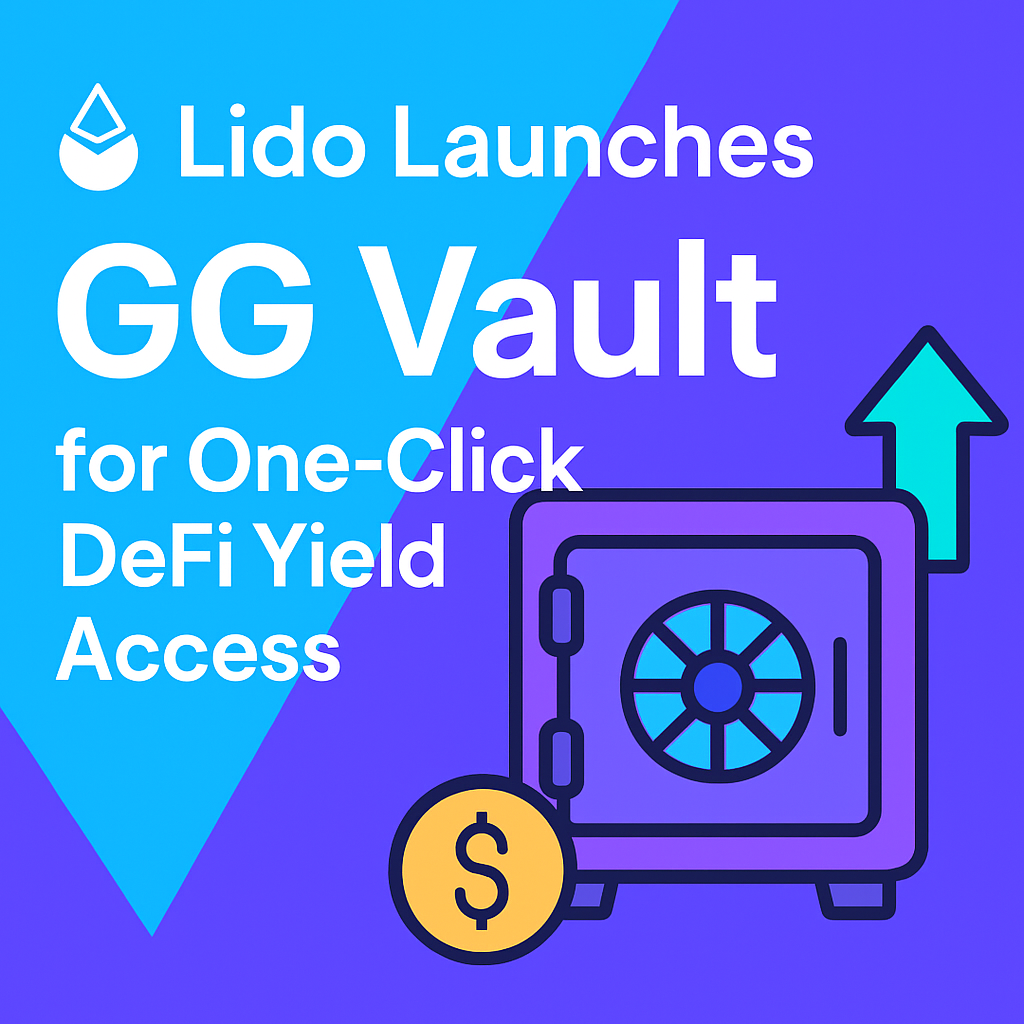The Lido Ecosystem Foundation unveiled GG Vault on September 3, providing a unified interface for automated deployment of user deposits across a curated basket of decentralized finance protocols. The Earn tab within Lido’s platform now features GG Vault, which accepts deposits of ETH, WETH, stETH, and wstETH and allocates funds across multiple liquidity and lending venues.
GG Vault integrates leading DeFi protocols, including Uniswap, Aave, Euler, Balancer, Gearbox, Fluid, and Morpho. The product aims to eliminate the manual steps traditionally required for yield optimization, enabling depositors to earn returns from multiple strategies through a single transaction. The vault’s algorithm continuously rebalances allocations to pursue optimal risk-adjusted yields.
Alongside GG Vault, the Foundation launched the Decentralised Validator Vault (DVV), designed to diversify Ethereum staking across independent validator operators. The DVV feature enhances network security by distributing stETH-backed stakes to multiple validators, reducing concentration risk and supporting the overall decentralization of consensus participation.
The development responds to growing demand from users seeking streamlined access to DeFi yield products without the complexity of managing positions across separate platforms. Lido’s leadership emphasized the importance of risk management controls, including protocol whitelisting, on-chain monitoring, and safety modules to mitigate exposure to smart contract vulnerabilities.
Jakov Buratović, head of DeFi at the Lido Ecosystem Foundation, stated that GG Vault and DVV together represent “a comprehensive approach to both yield generation and protocol decentralization.” The launch follows extensive audits and community governance discussions to ensure alignment with Lido’s security standards and decentralized governance framework.
Market reaction to the launch included immediate activity on the vault, with early deposit volumes indicating strong user interest. Analysts project that GG Vault could capture a significant share of Lido’s existing stETH liquidity, further cementing the protocol’s position as a leading liquid staking provider and DeFi yield aggregator.
Future enhancements planned by the Foundation include support for additional asset types, dynamic fee structures based on performance, and integration of on-chain analytics tools. The roadmap also outlines governance proposals to adjust allocation strategies based on evolving market conditions, ensuring that GG Vault remains adaptive to the rapidly changing DeFi landscape.
Lido’s initiative underscores the ongoing convergence of liquid staking and DeFi yield strategies, offering a template for other ecosystem participants seeking to streamline user experiences and expand institutional engagement with decentralized finance.

Comments (0)